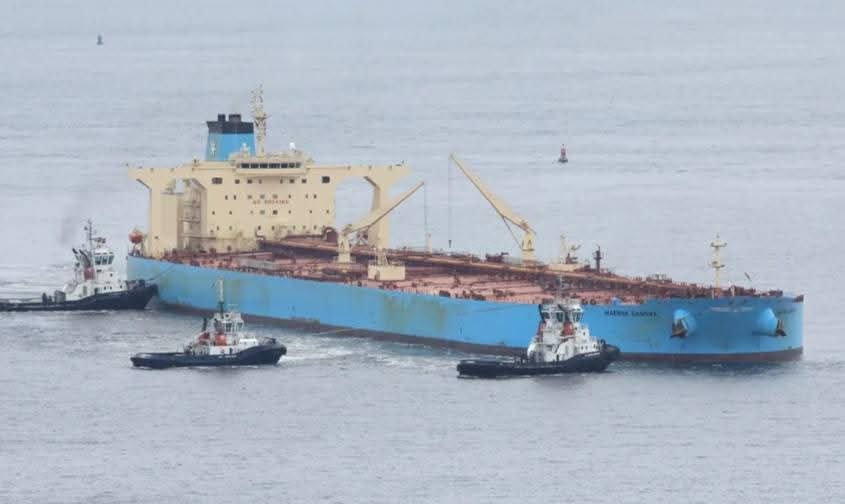In Kyaukphru Township, where tensions between the Arakan Army (AA) and the Myanmar junta forces have escalated, frequent clashes between the two sides are occurring. Despite the ongoing conflict, Chinese oil tankers continue to enter and exit the area as usual, according to eyewitnesses.
Residents of Kyaukphru report that clashes between the Arakan Army and the junta forces have been taking place since February 20.
However, Chinese oil tankers carrying crude oil from the Middle East have continued to operate as usual, entering and exiting the area up until today, February 26, according to eyewitnesses in Kyaukphyu.
“The large Chinese oil tankers are still moving in and out as usual. Even today, an oil tanker departed,” a Kyaukphru resident who personally witnessed the situation told Border News Agency.
Residents of Kyaukphru report that clashes between the two sides began on February 20 after the Arakan Army ambushed a military convoy from the junta’s No. 32 Police Battalion stationed in the town.
During these clashes, junta naval warships have been providing heavy artillery support, while airstrikes have also been carried out, according to local sources in Kyaukphru.
However, residents of Kyaukphru say that the Arakan Army has not yet launched any offensive attacks or carried out artillery strikes. As a result, daily life in the town remains normal, with civilians moving around as usual.
“The town is calm for now. People are going about their daily activities, and the market is still busy,” a Kyaukphru resident told Border News Agency.
In Kyaukphru Township, including villages like U Kin and Si Maw, junta airstrikes have caused civilian casualties. However, the exact number of casualties is still unknown, according to local residents.
Residents also report that while MPT mobile networks are available in Kyaukphru Township, they do not have coverage in all areas.
Despite ongoing clashes in Kyaukphru Township, including attacks involving junta naval warships and airstrikes, large Chinese oil tankers continue to operate as usual. Residents express concern that artillery shells could land near these tankers, potentially causing explosions.
However, some locals speculate that the continued movement of these oil tankers may be the result of agreements between both sides or security arrangements put in place to ensure their safety.
“The large Chinese oil tankers are moving in and out frequently. I don’t know what kind of arrangements have been made, but they are traveling boldly. Since they are fully loaded with oil, even a single hit could be disastrous,” a Kyaukphru resident told Border News Agency.
Kyaukphru Township’s Madae Island is home to China’s deep-sea port and a gas pipeline, making it a key strategic location. Because of this, locals believe that both sides are taking precautions to protect China’s economic interests in the area.
The Arakan People’s Revolutionary Government announced on December 29 last year that it would take special measures to ensure the safety and security of investments, projects, and investors in the Arakan region.
In areas under the control of the Arakan Army, the Arakan People’s Revolutionary Government has established administrative mechanisms and is providing public services to the local population, according to residents.
Only three townships Sittwe, Kyaukphru, and Manaung—remain to be captured by the Arakan Army. According to locals, intense clashes are currently taking place in Sittwe and Kyaukphru.






